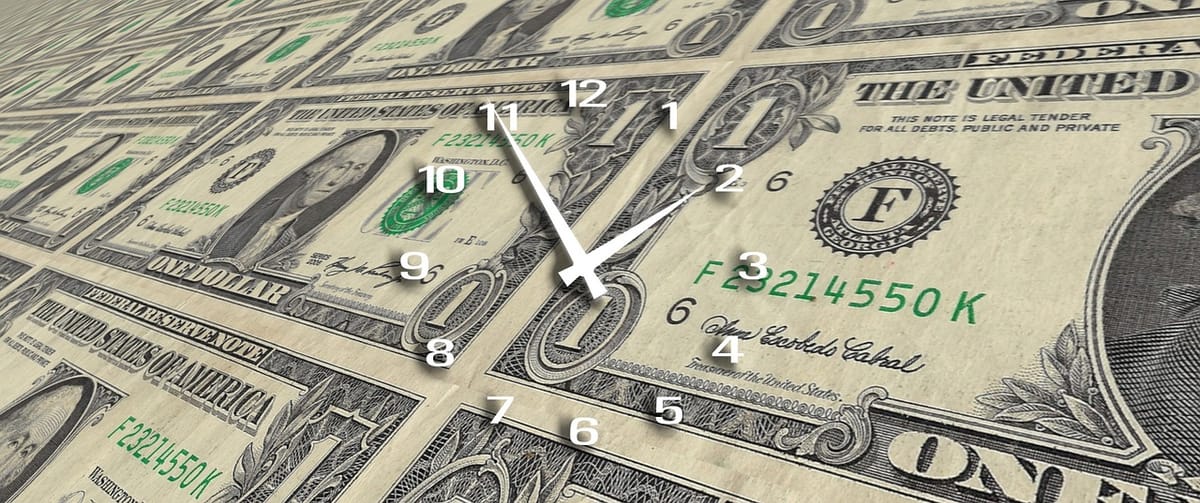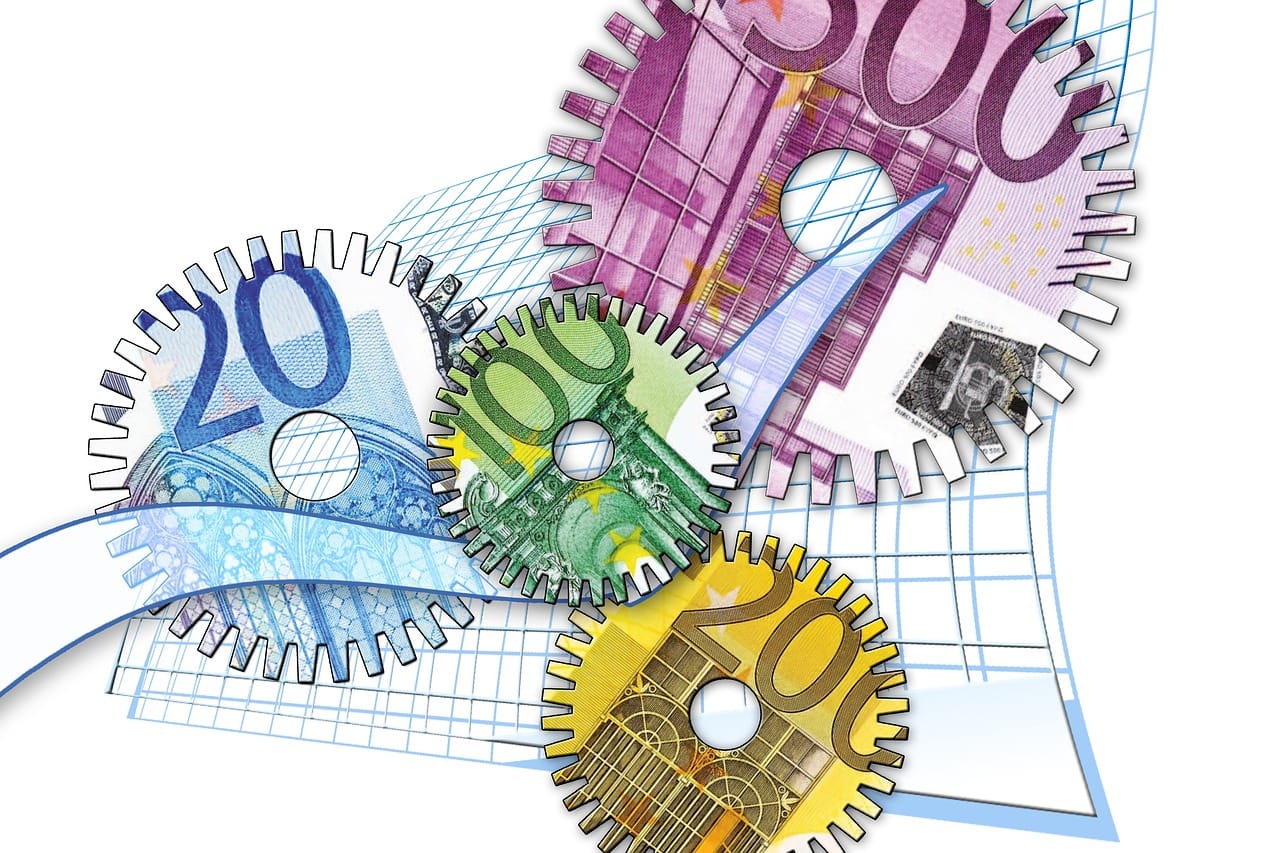Financial Resilience in the Face of Inflation | Proactive Measures for the Prudent Consumer
Amid rising inflation, learn proactive measures to safeguard your financial well-being. This article explores savvy budgeting, comparative shopping, bulk buying, and couponing as strategies for financial resilience

In a world where the only constant is change, the specter of inflation looms large, casting a shadow over the financial landscapes of countless individuals and families. Prices climb, wages struggle to keep pace, and the purchasing power of savings seems to erode as quickly as a shoreline against relentless waves. This reality, a shared global narrative, breathes life into an often-abstract economic term, making it a tangible presence in the aisles of grocery stores, at the gas pump, and within the silent calculations of a monthly budget. "Financial Resilience in the Face of Inflation: Proactive Measures for the Prudent Consumer" seeks not only to address this economic adversary but to dissect the very human response it elicits.
Inflation is not merely a matter of percentage points and policy debates—it is a psychological force, one that tests the resilience of the human spirit. The mental toll it takes can manifest in sleepless nights spent worrying about the future, or in the subtle reshaping of dreams to fit within the confines of economic realities. Yet, amid this seemingly grim tableau, there lies a potent form of empowerment—financial resilience. This concept transcends the simplistic notion of enduring hardship; it is about adapting, overcoming, and finding strength in strategies that safeguard one’s economic well-being.

The forthcoming exploration into this subject is not just an academic exercise; it is a tapestry woven with the threads of real-life stories, practical advice, and the shared experience of navigating the uncertain waters of an inflationary age. We will journey through the corridors of everyday decision-making, from the humble act of budget creation to the strategic nuances of investment and diversification. This article aims to equip you, the reader, with the tools not just to survive, but to thrive. It is an invitation to stand firm in the face of economic pressures, to craft a life that is not defined by the constraints of cost but enriched by the wisdom of thoughtful financial planning.
As we embark on this journey together, remember that the quest for financial resilience is inherently human. It is about more than dollars and cents; it is about the sense of security and freedom that comes from knowing you are prepared. It is about the peace of mind that accompanies a well-stocked emergency fund, and the quiet joy found in the simple act of getting more for less. In the grand narrative of your life, let the chapters be marked by the choices you make in pursuit of a stable and fulfilling financial future. In the pages that follow, let us chart a course through the challenges of inflation, armed with the most powerful weapon at our disposal: knowledge.
Savvy Budgeting | Mindful Approach
Crafting a budget is an act that resonates deeply with the essence of empowerment. To budget is to script the narrative of your fiscal journey, to assert control where there may otherwise be chaos. It is not simply a mechanism to tighten the belt or pinch pennies; it is the art of orchestrating your financial resources to harmonize with your life's goals. When you plot out where each dollar should flow, you're charting a course for your future—one that avoids the shoals of insolvency and steers toward the haven of financial freedom.
The act of budgeting can indeed be transformative, impacting far more than the balance in one’s bank account. It's a declaration of independence from the unpredictable tides of the economy, a safeguard against the unforeseen. Yet beyond these pragmatic aspects, there lies a less tangible, but equally significant outcome—the emotional benefit. For many, the simple act of identifying areas of wasteful expenditure and redirecting those funds can bring a profound sense of relief and clarity. It's a therapeutic purge of financial inefficiencies that leaves behind a leaner, more purposeful spending plan.
Eliminating unnecessary spending has a cathartic effect, akin to decluttering one's living space. There's a mental weight lifted when you know that every expense has a purpose, that your hard-earned money isn't trickling away unaccounted for. This mindful approach to budgeting brings with it a tranquility, a buffer against the stress that often accompanies financial management. With each redundant cost identified and cut away, a piece of anxiety is removed, replaced by a bolstered sense of self-efficacy.
Comparative Shopping | More Than Just Numbers
On the flip side of budgeting is the dynamic world of comparative shopping, an arena where acumen and diligence can yield great rewards. It is more than a hunt for bargains; it is an exercise in value maximization. The modern consumer, armed with a plethora of digital tools, stands at a vantage point unimagined by previous generations. Price comparisons that once required laborious research now unfold at the click of a button, offering immediate insights into where value resides.
The joy and empowerment derived from snagging the best deal transcends the financial saving—it's the victory of a well-played game, the endorphin rush of a challenge met and conquered. Each discounted purchase is a testament to the shopper's skill and savvy, and it contributes to a broader narrative of personal agency and competence in one's financial life.
Personal anecdotes abound, illustrating the life-altering impact of this practice. Take, for example, the story of a young family who, by switching to generic medications, was able to save enough for a vacation—turning what would have been an outflow of funds into memories that will last a lifetime. Or consider the retiree who, by opting for store-brand groceries, could allocate more money to his grandchildren's education fund, investing in their future while preserving his own financial stability.
Such stories underscore a simple truth: When it comes to spending, the savvy consumer does not merely look at the price tag but looks beyond it, to the broader implications of their purchasing decisions. Comparative shopping thus becomes not just a tactic for economic efficiency, but a strategy for life enrichment. It’s not solely about the money saved; it’s about the experiences gained and the future secured. This conscientious approach to spending is a cornerstone of financial resilience, a proof that when it comes to the art of personal finance, the mindful shopper is indeed the master of their fiscal fate.
Bulk Buying | Embracing the Psychology of Abundance

Engaging in the practice of bulk buying extends beyond the practical benefits of cost-saving; it taps into the deeper psychological concept of abundance. There is a unique peace of mind that emerges from the sight of a well-stocked pantry—an almost primal assurance of security and preparedness. This sense of plenty, originating from our ancestral roots where scarcity was a constant threat, still resonates within the modern psyche. As such, bulk buying is not just an economic decision; it's a proactive step towards cultivating a domestic haven of plenty, which, in turn, yields long-term financial benefits. The strategic reserve of necessities mitigates the risk of impulse purchases, often made at a premium during times of need, and acts as a buffer against the volatility of market prices.
Furthermore, the act of bulk purchasing often occurs within the communal spaces of warehouse clubs, which fosters a sense of belonging and collective savings among members. These institutions offer more than just goods in large quantities; they offer an entry into a community that shares values of foresight, stewardship, and mutual benefit. The membership card becomes a token of access to an exclusive alliance, reinforcing social bonds and creating an environment where savvy spending is both a personal advantage and a shared endeavor.
Couponing and Discounts Reveling in the Thrill of the Chase
The modern-day treasure hunt for coupons and discounts is a pastime that marries the excitement of the chase with the satisfaction of victory. This pursuit, far from being a mundane task, is replete with strategy and anticipation. The successful navigation through flyers, apps, and promotions to uncover the best deals provides a rush akin to that of a game well played. Such experiences invigorate the consumer, transforming the routine task of shopping into an engaging quest for value.
Moreover, the cumulative effect of consistent savings, no matter how small individually, can significantly bolster one's financial confidence over time. Each discounted purchase is a building block in a larger structure of economic resilience. As these savings accrue, they do not just represent dollars and cents saved; they symbolize a consumer's adeptness and proactive nature in managing personal finance. It is a repeated affirmation of one's capability to effectuate tangible savings and, by extension, to exert control over one’s financial destiny.
Investment in Growth Assets | The Optimist’s Financial Play
Investing in growth assets such as stocks and real estate is not merely a transaction—it is the embodiment of an optimistic stance towards one's personal wealth and the economy at large. It signifies a belief in progress and the potential for prosperity. This forward-looking perspective acknowledges the presence of economic uncertainties yet chooses to focus on the opportunities that lie ahead. It's a manifestation of hope, substantiated by historical trends and the resilient nature of economic cycles.
The psychological underpinnings of this approach are profound. It channels a future-focused mindset, encouraging individuals to envision a richer tomorrow and take concrete steps to actualize it. The act of investing becomes a self-fulfilling prophecy, where the investor’s confidence in the market's potential catalyzes their own financial growth. Furthermore, this act of investing imparts a sense of participation in the broader economic narrative—a tangible connection to the engines of innovation and growth that drive societal progress.
In essence, each investment in growth assets is more than a financial stake; it is a declaration of faith in the future, a testament to the enduring human spirit that looks beyond the tumult of today towards the promise of tomorrow. The psychological reward of this approach is twofold: it provides the practical prospect of wealth accumulation and the intangible, yet invaluable, sense of contributing to, and sharing in, the economic advancement of one's community and country.
In conclusion, the various strategies for financial management and wealth-building—such as savvy budgeting, comparative shopping, bulk buying, couponing, and investing—serve not only as tools for economic gain but also as avenues for psychological fulfillment. Each method, from the mindfulness of budgeting to the optimism inherent in investing, underscores a proactive and positive approach to personal finance. They offer more than mere savings; they provide peace of mind, a sense of community, the thrill of the hunt, and an optimistic outlook on the future. As consumers, the choices we make with our money reflect and impact our inner lives, proving that financial wisdom is as much about nurturing our emotional well-being as it is about growing our financial resources. By adopting these practices, we can build not just a buffer against inflation but a foundation for a thriving and resilient financial life




